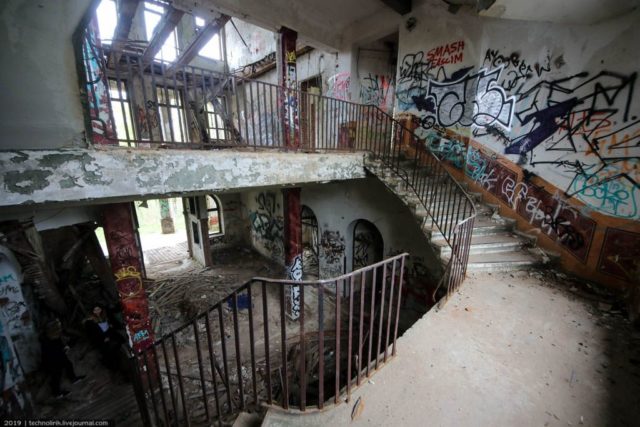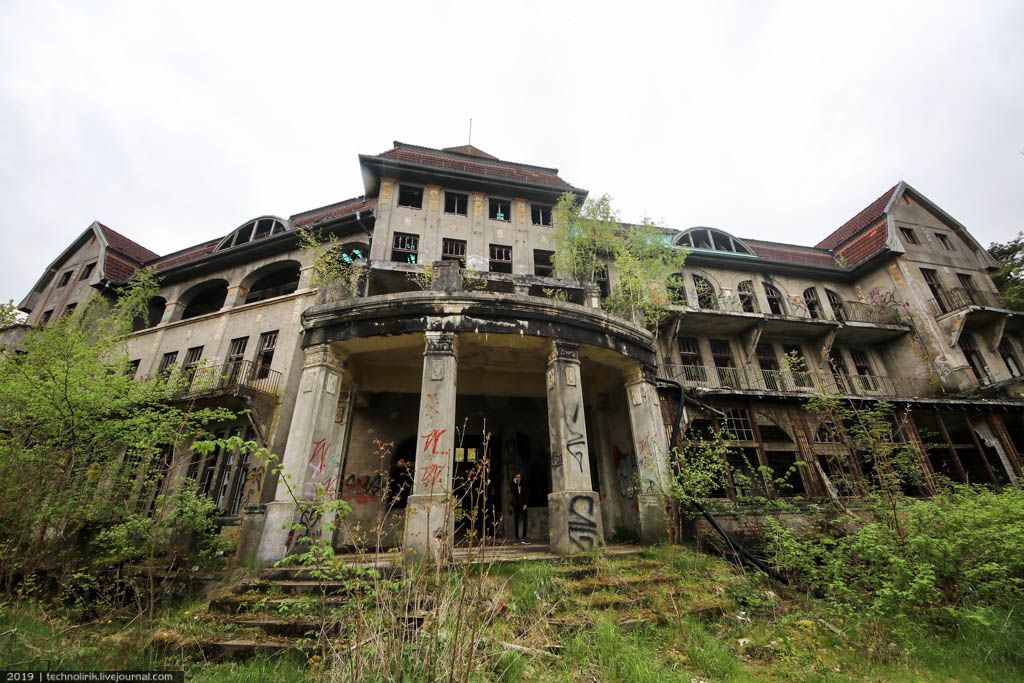The German spa hotel called Zippendorf which stands on the south side of Lake Schwerin in Mecklenburg, Germany, is a ruin nowadays. During its lifetime, the building has been in the possession of various different owners. However, for the last 30 years, it has stood empty and continues to deteriorate due to vandals and the elements.
Kurhaus GmbH was founded in 1909 with the aim of developing tourism in the Schwerin region. This particular location was chosen because of the nearby lake and the beach, which would naturally prove a draw to potential guests.
A year later, in 1910, a resort hotel was built by the architect Paul Korff. The Zippendorf Hotel consisted of 63 beds across 45 rooms, reading rooms, and a covered veranda, and was designed to be a climatic health resort.
The company faced an unexpected obstacle in that the city didn’t maintain the infrastructure and environment of the surroundings. For example, the walkways weren’t maintained and the beach was covered in trash. This obviously didn’t provide an inviting environment for hotel guests.
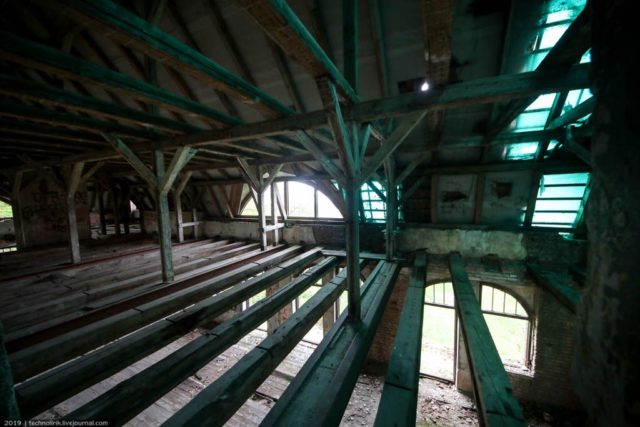
Prior to the First World War, Zippendorf Hotel positioned itself within the tourist market as a spa resort with all modern amenities, where almost all rooms had a balcony or loggia.
When the First World War began, the number of tourists and hotel visitors naturally reduced. To make up for this loss of income, the company rented its premises to the artillery depot.
Once the war ended, the hotel’s owners put it up for sale. It took until 1919 for a sale to be agreed, at which point the hotel was sold at a loss to a man named Friedrich Schwarz. Friedrich already owned two hotels, which were located in the same area but closer to the city center.
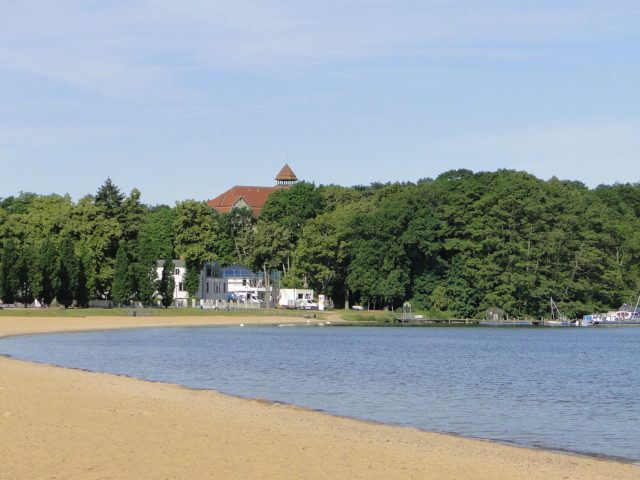
The new owner went to great lengths to restore the hotel and have it back to normal operations. It wasn’t until the 1920s that these efforts began to bring success. A particular feature that influenced this new profitability was the fact that from 1921 it became possible to reach the hotel by tram.
Unfortunately, the economic crisis in the country hit the hotel hard. Friedrich Schwarz was forced to file for bankruptcy. In 1931, the Zippendorf hotel was closed and immediately put up for sale. However, it was not easy to find a buyer as the hotel had earned a bad reputation.
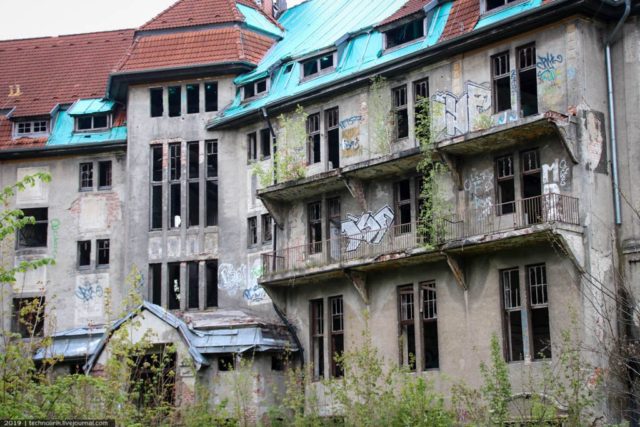
For two years, no buyer could be found. At the beginning of 1933, the plot of land and the hotel were seized as part of foreclosure proceedings. After that, the hotel got a new owner – Max Otto Kirst.
Unfortunately, under Kirst’s management, not many tourists were attracted to this huge hotel. In general, only about 5% of its rooms were occupied.
In 1938, the hotel hosted Sudeten German refugees. However, this ultimately led to Kirst losing his license in 1939 due to the untidiness of the hotel and poor treatment of the refugees. Legal disputes with the city began but were soon overshadowed by the start of the Second World War.
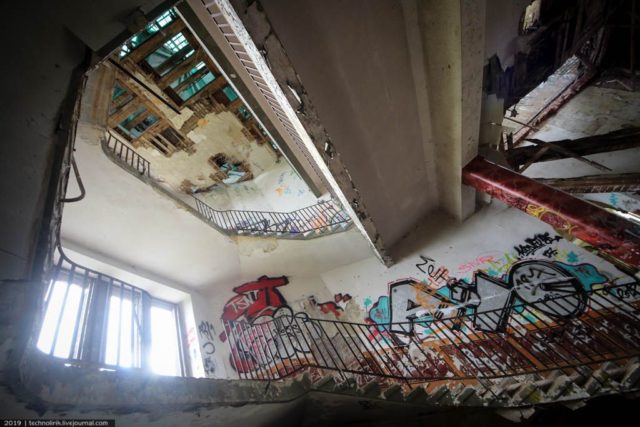
During the war in 1944, the Zippendorf Hotel was confiscated by the German Air Force and converted into a military hospital. After the end of the war, the building became a rest home for former concentration camp prisoners. In the early 1950s, the city finally confiscated the building from the owners.
From 1956, the former hotel was owned by SC Traktor Schwerin (a GDR sports club) and used as a clubhouse and hostel for athletes involved in boxing, athletics, sailing, and volleyball. In 1984, the building was sold to the Schwerin-Süd leather goods factory.
In 1990, the Treuhandandstalt took over the Zippendorf Hotel, tasked with privatizing state-owned buildings. Treuhandanstalt provided a new roof as well as overhauling the electrical lines and heating system.
Various plans were put forward to use the property, including turning it into an internet university. At some point, it also became a listed building. However, nothing was done with the land or the building.
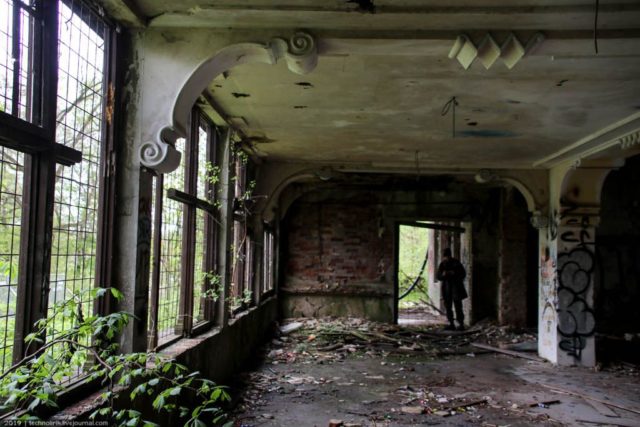
Instead, another new owner was found in 2008, one who planned to establish a Health and Advanced Training Academy with hotels and restaurants. A fence was put up around the former hotel, but no further works were carried out.
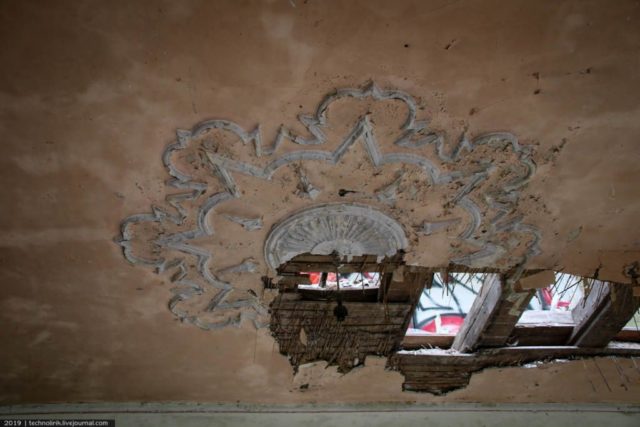
In 2012, there were plans to build high-quality condominiums. Despite the site being cleared and planning permission being obtained, the investor announced in May 2013 that it wouldn’t be carrying through with its plans. The hotel was, once again, put up for sale at a price of 750,000 euros.
In 2016, a project was put forward to create a residential complex with 18 apartments, the construction of which was to be completed in 2018. Unfortunately, two of the investors jumped ship, halting the project until more investors can be found. As such, the future of the Zippendorf Hotel is as uncertain as it ever was.
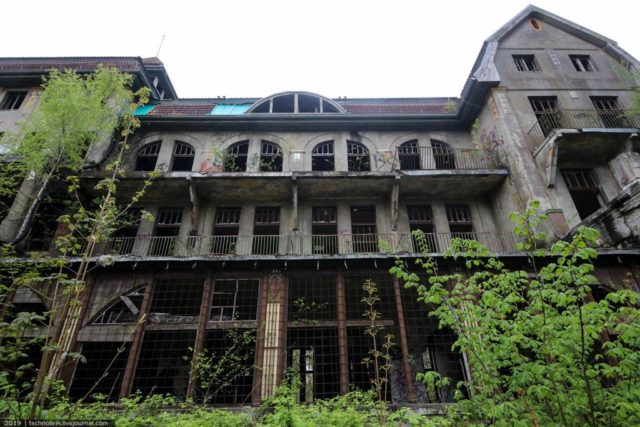
A big thank you to Alexandr and his LiveJournal account for sharing such amazing photographs of this ruined building with us.
Alex lives in Germany and has got an account where he writes about different locations. He has written his own article about this location where you can find more of his photos and information. You should definitely check out his LiveJournal account and Facebook page. Enjoy!
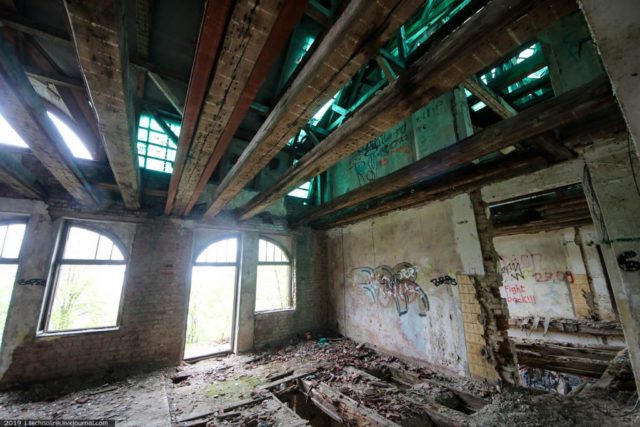
Another Article From Us: Abandoned Wustrow, Largest Anti-Aircraft School in Germany
